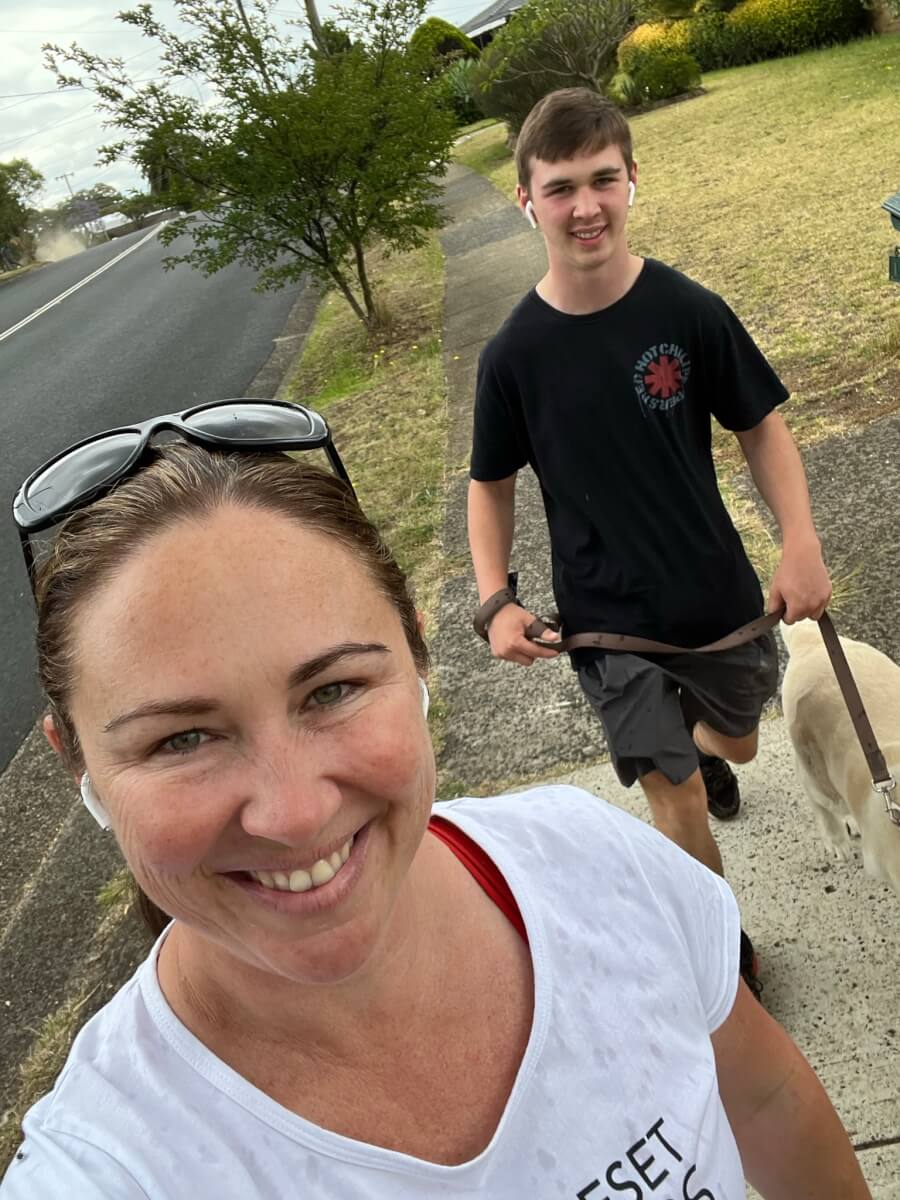Type 1 Diabetes in Children

Type 1 Diabetes and Motherhood
Mrs Price, your son has Type 1 Diabetes……..
I heard these words 14 years ago, as I stood in the hospital emergency department with my 14 month old and an 8 week old baby. My child had Type 1 Diabetes.
Cody had not long had his first birthday with a big celebration of all milestones he had accomplished post his traumatic birth. At the end of the Summer he came down with his first flu. I was 6 months pregnant and juggling early motherhood, pregnancy, working part-time and running a household.
But, several months later, as I was recovering from my c-section birth with Austin, my little boy Cody wasn’t getting better. I finally took him to the GP at the time and asked for their advice,
Go home, cook him some soup and he will be fine
As a mother I knew something wasn’t right….
I was exhausted, stressed and depleted. But I recall a moment, one bedtime, when Cody called out “Mum” several times, crying and just looking at me deeply, into my soul, and I knew that something else was going on. And he was trying to tell me. Toddlers rely on you for everything, but trying to ask them to articulate clearly what’s wrong, is virtually impossible. But as a Mother you just know. As Joan Ryan says,
Motherhood is about raising and celebrating the child you have, not the child you thought you would have. It’s about understanding that they are exactly the person they are supposed to be and that, if you’re lucky, they just might be the teacher who turns you into the person you are supposed to be.
What is Diabetes?
Diabetes is the fastest growing chronic condition in Australia with one person diagnosed every five minutes. Around 13,200 children and young adults aged 0–19 were living with type 1 diabetes in 2021. There are 2,700 new cases of type 1 diabetes each year – an average of 7 newly diagnosed people a day.
Type 1 Diabetes occurs when the pancreas cannot produce insulin which can lead to being excessively thirsty, fatigued, blurred vision, mood swings and headaches.
7 common Type 1 Diabetes symptoms
- extreme thirst
- constant hunger
- sudden weight loss
- frequent urination
- blurred vision
- nausea and vomiting
- lethargy
I missed the signs. But I was also never told to look out for these signs.
Tests showed that Cody’s blood glucose and ketones levels were dangerously high and on arriving to hospital the ER Doctors said his levels were so high that within another 24-48 hours he would have fallen into Diabetic ketoacidosis (DKA). This is a dangerous complication faced by people with diabetes which happens when the body starts running out of insulin. Ketoacidosis is a serious short term complication which can result in coma or even death if it is not treated quickly.
Life with Type 1 Diabetes
Parenting a child with Type 1 Diabetes can be challenging, but with the right tools and support, it’s possible to manage the condition effectively.
- Blood glucose levels are easily affected by things like food, exercise, hormones, illness and emotions. You need to be vigilant with monitoring of blood glucose levels to ensure the correct insulin is given via needles/insulin pump. An insulin pump is a small electronic device that can help you mimic the way a healthy pancreas functions, replacing the need for frequent injections. The pump delivers precise doses of rapid-acting insulin 24 hours a day, to match your body’s needs and CGM (continuous glucose meter)
- At the hospital we were given a brief education – handbooks to learn about this condition, scripts for insulin and supplies we needed. Then we were sent off, on our way to navigate this every day for the rest of Cody’s life. No cure.
- Life becomes a whirl of blood glucose finger prick testing, pen needles of insulin, insulin pump, CGM and constant monitoring.
- We give Insulin to Cody at all meals and it is checked at least 4-6 times a day.
- I’m a ninja at calculating all carbohydrates and sugars eaten at meals! This is required to make sure the right amount of insulin is given.
- Juice, lollies, glucose tablets, emergency hypo packs in all places, bags, rooms, cars, houses, luggage, school bags are lifesaving when their blood sugar levels drop dangerously low.
- I’m also a whizz at menu planning! This is important as is having enough food available.
How I have navigated our journey with Type 1 Diabetes
I have educated myself about Type 1 Diabetes. This allows me to be better equipped to manage Cody’s condition. I attend educational classes and workshops. I read books and speak, in depth, to my child’s healthcare team. The following also help me navigate this path:
- Have a support network – it is essential. I joined a local support group and connected with other parents online. I also reach out to family and friends for help.
- Routine is key. Scheduling meals and snacks, setting regular insulin dosages plus planning physical activity, are all part of our days. Sticking to the routine as much as possible helps Cody maintain stable blood sugar levels.
- Monitoring blood sugar levels regularly. I have a system for tracking blood sugar levels to make sure I check them regularly. This helps us to make adjustments to insulin doses and food choices as needed.
- Keep healthy snacks on hand. This can help prevent blood sugar levels from dropping too low or spiking too high. I carry snacks with me when we’re out and I also stock up on healthy options at home.
It’s a family affair
Cody is older now and involved in his own diabetes management. I encourage him to monitor his own blood sugar levels, administer insulin and make healthy food choices. We also have open communication with Cody’s healthcare team. We encourage Cody to do this with his teachers, friends etc. Scheduling regular appointments with Cody’s endocrinologist and diabetes educator allows us to discuss any concerns or questions as they come up.
Taking care of your own well-being. Parenting a child with Type 1 Diabetes can be stressful, sleep depriving and demanding. I prioritise my own self-care, ensuring I get enough sleep. I reach out if I need support.
Where to go for help:
In addition to seeking assistance from the endocrinologist team, there are many resources and ways to connect with others in Sydney, Australia.
- The Juvenile Diabetes Research Foundation (JDRF)
- Diabetes NSW & ACT
- The Australian Diabetes Educators Association (ADEA)
- Diabetes support groups – Diabetes Australia
Lisa Price runs Body Reset Fitness in New South Wales, . Learn more about Lisa and Book your Trial today.
